Circular Food Innovation Lab
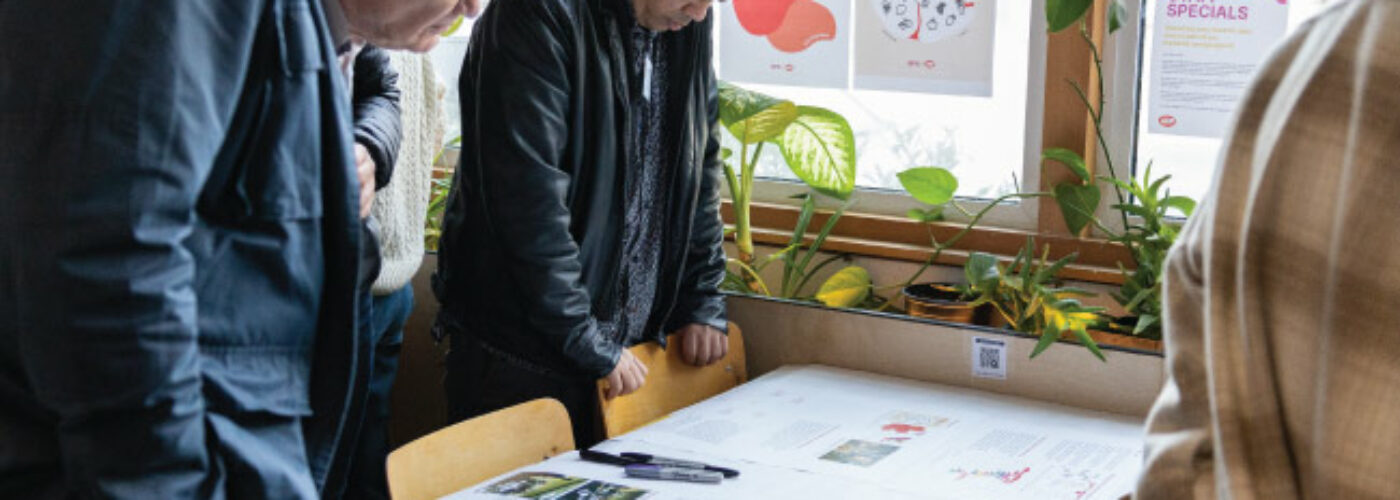

.hero {display: none;}
.landing-hero-container {
background-color: #16bdce;
padding: 3%;
}
.landing-hero-row {display: flex;}
.landing-hero-text {
width: 47%;
padding-right: 5%;
position: absolute;
top: 0px;
margin-top: 6%;
}
.landing-hero-image {
width: 50%;
float: right;
background-image: url(https://vancouvereconomic.com/wp-content/uploads/2023/06/CFIL_Banner.jpg);
background-repeat: no-repeat;
background-size: cover;
background-position: center;
height: 100%;
min-height: 375px;
overflow: visible;
margin-bottom: -13%;
margin-left: 50%;
}
.landing-hero-h1 {font-size: 25px !important; font-weight: 500 !important;}
.landing-hero-h2 {font-size: 32px !important; line-height: 1; margin-top: 0.5em !important;}
.landing-hero-h3 {font-size: 20px !important; font-weight: 500 !important;}
@media screen and (max-width: 768px) {
.landing-hero-h1 {font-size: 20px !important;}
.landing-hero-h2 {font-size: 25px !important;}
.landing-hero-image {min-height: 340px;}
.landing-hero-text {width: 45%; margin-top: 5%;}
}
@media screen and (max-width: 640px) {
.landing-hero-h1 {font-size: 16px !important;}
.landing-hero-h2 {font-size: 20px !important;}
.landing-hero-h3 {font-size: 16px !important;}
.landing-hero-image {min-height: 340px;}
.landing-hero-container {position: relative;}
.landing-hero-row {display: block;}
.landing-hero-text {
width: 100%;
padding-right: 5%;
bottom: auto;
position: relative;
margin-bottom: 3%;
margin-top: 0;
}
.landing-hero-image {
width: 100% !important;
margin-left: auto;
display: block;
float: none;
min-height: 200px;
}
}
With Vancouver food businesses placed in the center of the Lab process, the Circular Food Innovation Lab (CFIL) aimed to reduce wasted food and imagine steps towards a just, equitable circular economy of food for all in Vancouver. Findings and learnings were co-developed with all project participants.
The findings from the Lab are intended to serve as an inspiration and resource for businesses in the Vancouver food sector (and beyond) looking to incorporate circularity. Start with the CFIL executive summary for a brief overview.
.landing-page-container {background: #eff3f5; padding: 2em; margin-top: -5em;}
.two-col-container1 {background: white; display: inline-block; margin: auto; width: 48%;}
.two-col-container2 {background: white; display: inline-block; margin: auto; width: 48%;}
.one-col-wide {
float: left;
width: 98%;
text-align: centre;
margin: 1%;
flex: 1;
display: flex;
flex-direction: column;
background: #f0f3f5;
}
.one-col-wide2 {
float: left;
width: 98%;
text-align: center;
margin: 1%;
flex: 1;
display: flex;
flex-direction: column;
background: transparent;
}
.two-col-left3 {
float: left;
width: 48%;
text-align: left;
margin: 1%;
flex: 1;
display: flex;
flex-direction: column;
background: white;
}
.two-col-left2 {
float: left;
width: 48%;
text-align: left;
margin: 1%;
flex: 1;
display: flex;
flex-direction: column;
background: white;
}
.two-col-right1 {
float: left;
width: 48%;
text-align: left;
margin: 1%;
flex: 1;
display: flex;
flex-direction: column;
background: white;
}
.two-col-right2 {
float: left;
width: 48%;
text-align: left;
margin: 1%;
flex: 1;
display: flex;
flex-direction: column;
background: white;
}
.three-col-left {
float: left;
width: 31%;
text-align: left;
margin: 1%;
flex: 1;
display: flex;
flex-direction: column;
background: #f0f3f5;
}
.three-col-middle {
float: left;
width: 31%;
text-align: left;
margin: 1%;
flex: 1;
display: flex;
flex-direction: column;
background: #f0f3f5;
}
.three-col-right {
float: left;
width: 31%;
text-align: left;
margin: 1%;
flex: 1;
display: flex;
flex-direction: column;
background: #f0f3f5;
}
.col-row:after {
content: “”;
display: table;
clear: both;
}
@media screen and (max-width: 970px) {
.two-col-container1 {width: 48%; margin-bottom: 0em; display: block; margin-right: 1em; padding: 1em;}
.two-col-container2 {width: 48%; margin-bottom: 0em; display: block; padding: 1em;}
.two-col-right1 {width: 100%; margin-bottom: 0em; display: block;}
.two-col-right2 {width: 100%; margin-bottom: 0em; display: block;}
.two-col-left1 {float: none; width: 100%;}
.two-col-left2 {float: none; width: 100%;}
}
@media screen and (max-width: 440px) {
.two-col-left3 {width: 100%; margin-bottom: 2em; display: block;}
.two-col-left2 {width: 100%; margin-bottom: 2em; display: block;}
.two-col-container1 {width: 100%; margin-bottom: 2em; display: inline-block; padding: 1em;}
.two-col-container2 {width: 100%; margin-bottom: 2em; display: inline-block; padding: 1em;}
}
The interventions we tested in the Lab have led to the development of promising tools and practices for reducing wasted food and increasing circularity. These can be accessed for use or adaptation in the Prototype Collection, a companion document to the full report.
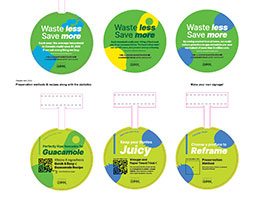
Educate partners and customers on revaluing imperfect produce and food preservation techniques
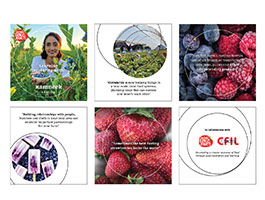
Amplify the work that organic and regenerative farmers and other circular practitioners are doing
Increase seasonal awareness for staff and customers alike
Evaluate value-added food product made from surplus produce
Increase seasonal awareness for staff and customers alike
Evaluate value-added food product made from surplus produce
Increase seasonal awareness for staff and customers
Evaluate value-added food product made from surplus produce
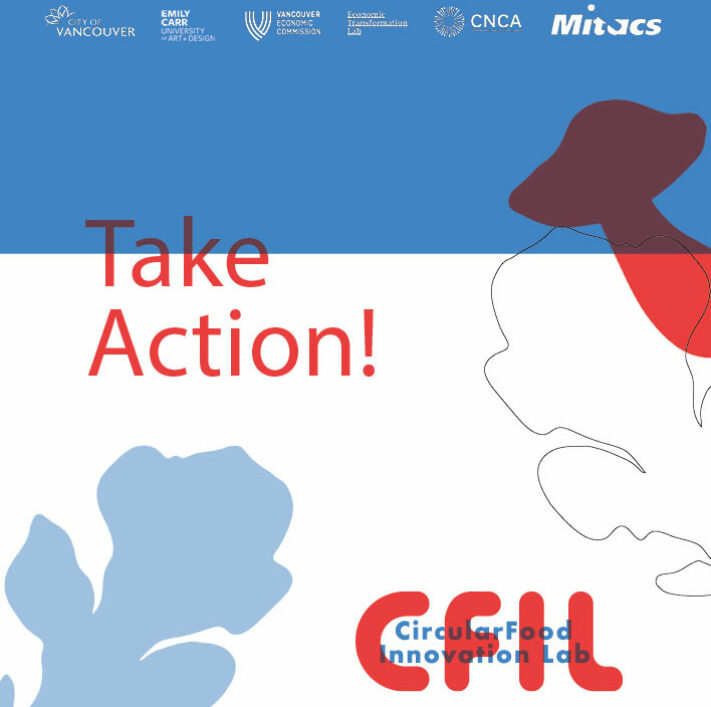
.one-col-wide {
float: left;
width: 98%;
text-align: centre;
margin: 1%;
flex: 1;
display: flex;
flex-direction: column;
background: #f0f3f5;
}
@media screen and (max-width: 970px) {
.three-col-left {width: 100%; margin-bottom: 2em; display: block;}
.three-col-middle {width: 100%; margin-bottom: 2em; display: block;}
.three-col-right {width: 100%; margin-bottom: 2em; display: block;}
In 2018, the City of Vancouver set strong targets to decrease waste across all material streams in the Zero Waste 2040 Plan. Of all industries that have potential to go circular, the food sector has the farthest-reaching impact in terms of circular economic benefit. Supporting a transition to a circular economy of food is a key step in achieving Vancouver’s zero waste goals.
A major barrier to achieving a circular economy of food is a persistence of practices within the food industry. In order to shift our food system, our mindsets and practices need to shift throughout the food sector, from production and distribution to consumption and waste management.
When it comes to food circularity, surplus edible food can be upcycled into a different product for human consumption; if the surplus food is inedible, it is redirected to become compost or animal feed, or to contribute to the regeneration of our ecosystems as compost. Preventing food loss upstream long before food reaches the consumer became a top priority for this lab.
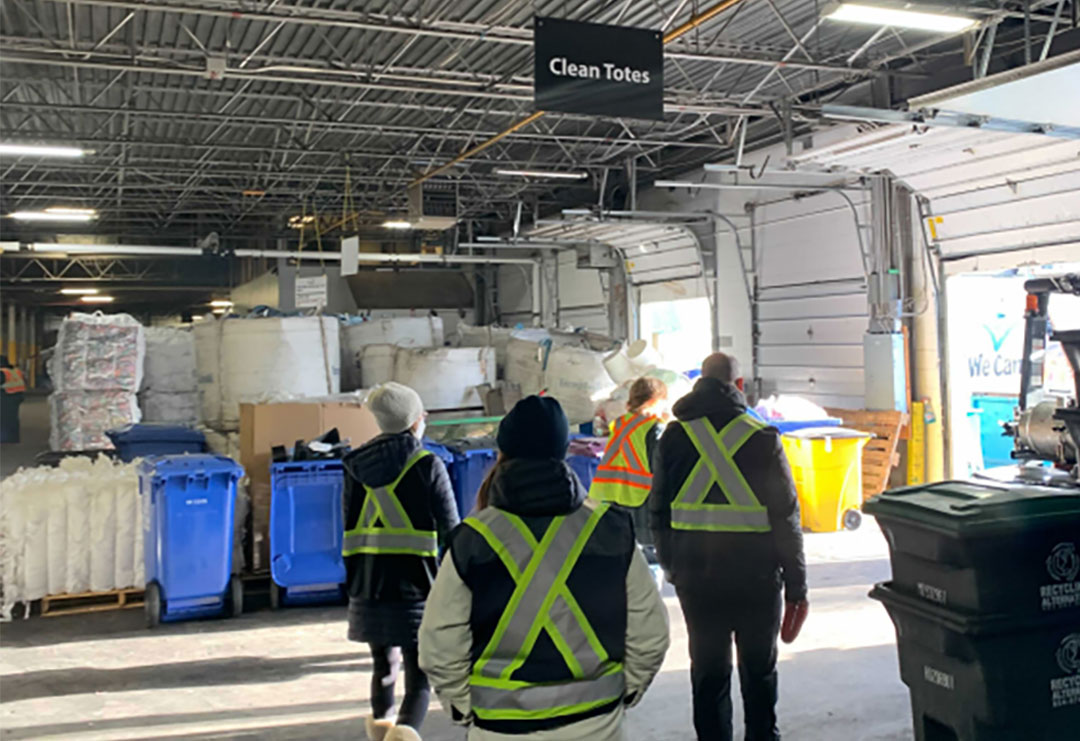
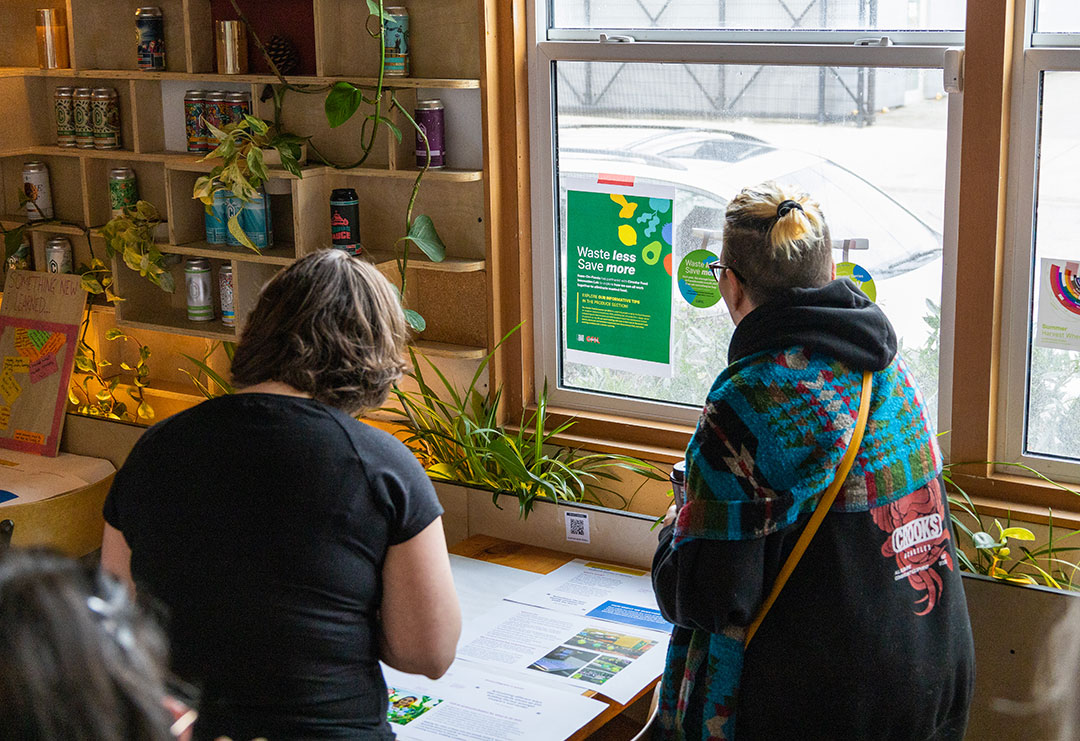
.col-row {
justify-content: center;
display: flex;
}
.one-col-wide {
float: left;
width: 98%;
text-align: centre;
margin: 1%;
flex: 1;
display: flex;
flex-direction: column;
background: #f0f3f5;
}
@media screen and (max-width: 970px) {
.col-row {display: block;}
.three-col-left {width: 100%; margin-bottom: 2em; display: block;}
.three-col-middle {width: 100%; margin-bottom: 2em; display: block;}
.three-col-right {width: 100%; margin-bottom: 2em; display: block;}
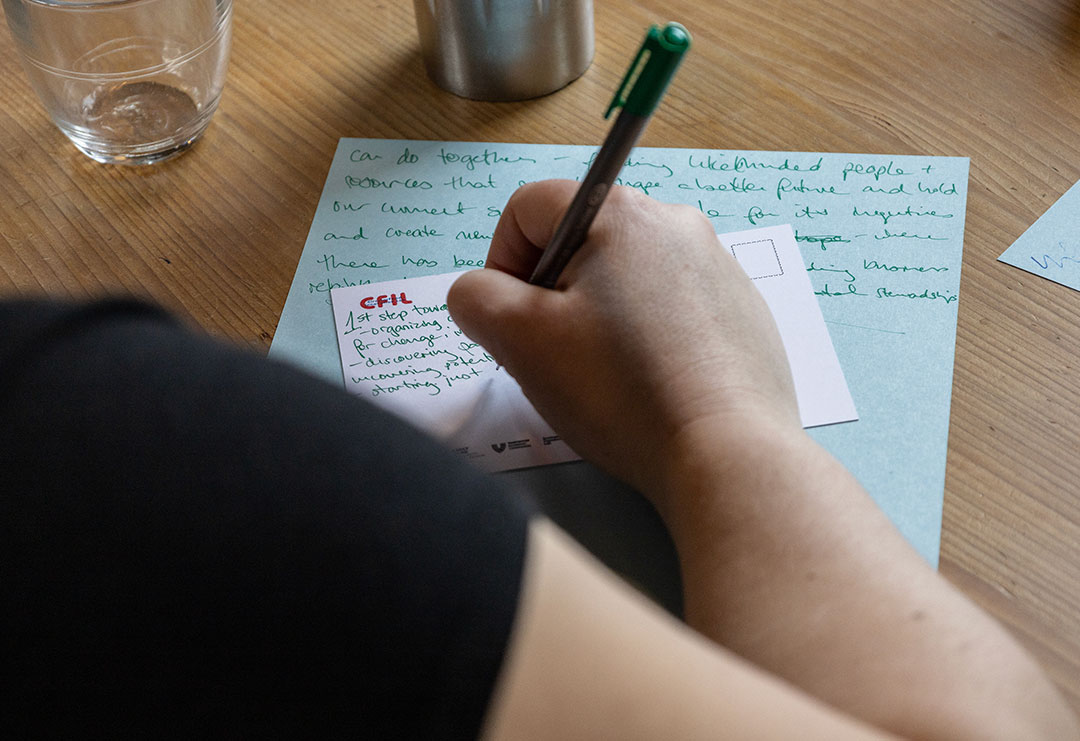
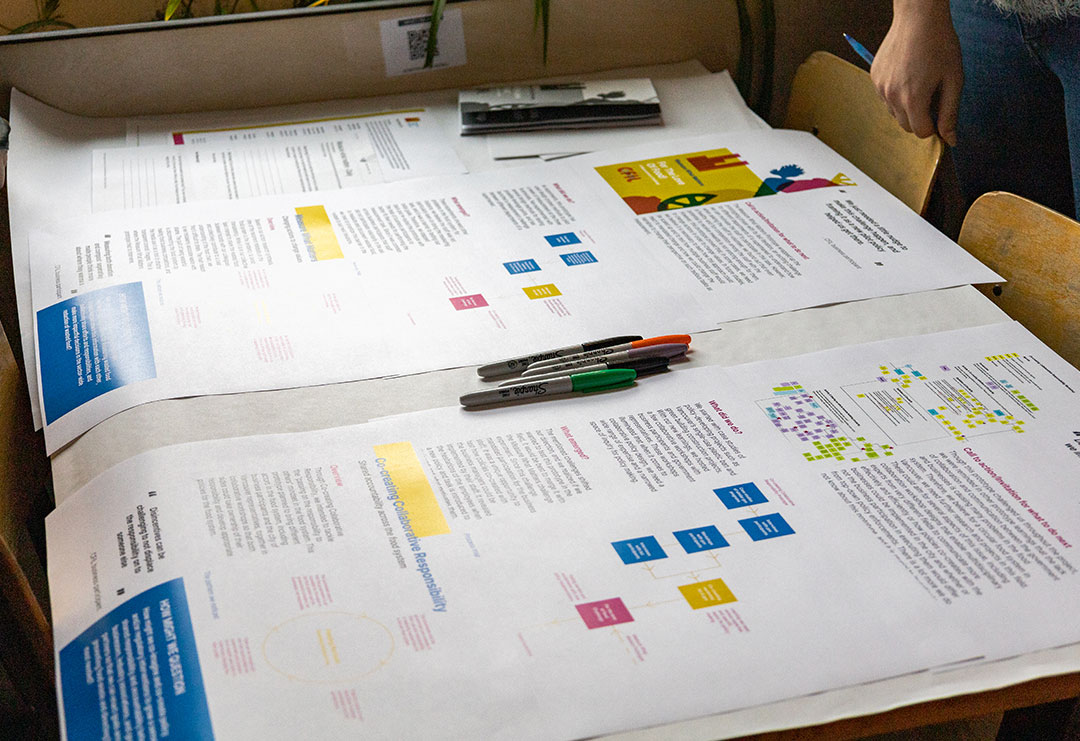
.col-row {
justify-content: center;
display: flex;
}
.one-col-wide {
float: left;
width: 98%;
text-align: left;
margin: 1%;
flex: 1;
display: flex;
flex-direction: column;
background: #f0f3f5;
}
.one-col-wide2 {
float: left;
width: 98%;
text-align: center;
margin: 1%;
flex: 1;
display: flex;
flex-direction: column;
background: transparent;
}
.three-col-leftB {
float: left;
width: 31%;
text-align: center;
margin: 1%;
flex: 1;
display: flex;
flex-direction: column;
background: transparent;
}
.three-col-middleB {
float: left;
width: 31%;
text-align: center;
margin: 1%;
flex: 1;
display: flex;
flex-direction: column;
background: transparent;
}
.three-col-rightB {
float: left;
width: 31%;
text-align: center;
margin: 1%;
flex: 1;
display: flex;
flex-direction: column;
background: transparent;
}
.four-col-1 {
float: left;
width: 24%;
text-align: center;
margin: 1%;
flex: 1;
display: flex;
flex-direction: column;
background: transparent;
}
.four-col-2 {
float: left;
width: 24%;
text-align: center;
margin: 1%;
flex: 1;
display: flex;
flex-direction: column;
background: transparent;
}
.four-col-3 {
float: left;
width: 24%;
text-align: center;
margin: 1%;
flex: 1;
display: flex;
flex-direction: column;
background: transparent;
}
.four-col-4 {
float: left;
width: 24%;
text-align: center;
margin: 1%;
flex: 1;
display: flex;
flex-direction: column;
background: transparent;
}
.five-col-box {
float: left;
width: 20%;
text-align: center;
margin: 1%;
flex: 1;
display: flex;
flex-direction: column;
background: white;
}
.col-row:after {
content: “”;
display: table;
clear: both;
}
@media screen and (max-width: 440px) {
.col-row {display: block;}
.three-col-leftB {width: 100%; margin-bottom: 2em; display: block;}
.three-col-middleB {width: 100%; margin-bottom: 2em; display: block;}
.three-col-rightB {width: 100%; margin-bottom: 2em; display: block;}
.four-col-1 {width: 100%; margin-bottom: 1em; display: block;}
.four-col-2 {width: 100%; margin-bottom: 1em; display: block;}
.four-col-3 {width: 100%; margin-bottom: 1em; display: block;}
.four-col-4 {width: 100%; margin-bottom: 1em; display: block;}
.five-col-box {width: 100%; margin-bottom: 1em; display: block;}
.mobile-logo {max-height: 35px;}
}























The Circular Food Innovation Lab took place on the unceded, unsurrendered, and ancestral homelands of the Hən̓q̓əmin̓əm̓ and Sḵwxw̱ú7mesh Sníchim speaking peoples of the xwməθkwəyə̓m (Musqueam), Sḵwxw̱ú7mesh Úxwumixw (Squamish Nation) and səlilwətaɬ (Tsleil-Waututh) peoples.
The Vancouver Economic Commission respectfully acknowledges that it is located on the unceded territories of the xʷməθkʷəy̓əm (Musqueam), Sḵwx̱wú7mesh (Squamish), and səl̓ilwətaɁɬ (Tsleil-Waututh) Nations.